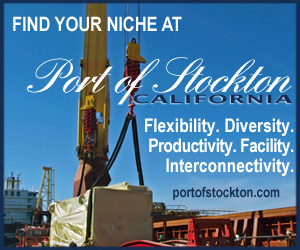

Friday, October 10, 2014
Mercedes creates prototype for self-driving semi
Mercedes-Benz is making a serious bid to revolutionize the trucking industry with its self-driving container truck prototype, and intends to spend the next 10 years getting it ready for commercial use.
The concept of Mercedes’ "Future Truck 2025" is not new—autonomous vehicles are used for farming and military applications, and passenger car versions are expected to be available by 2020. The self-driving semi would help eliminate big truck crashes due to driver error and fatigue.
With its Highway Pilot automated system, the Future Truck would allow truckers to drive less, allowing the driver to become a transport manager. The trucker would get the truck onto the highway and merge into traffic, but once he hits 50 mph, he’s prompted to activate the Highway Pilot and relax.
The driver can pivot his seat 45 degrees away from the wheel, and can let the truck’s navigation system to independently find the best route. If the truck approaches construction, or it’s time to get off the highway, the system flashes a visual alert so the driver can take control. If the driver doesn’t comply, the truck sounds an alarm, and if necessary will bring itself to "a controlled emergency stop."
"It never gets tired. It’s always 100 percent and sharp. It’s never angry; it’s never distracted," says Dr. Wolfgang Bernhard, the Daimler board member for trucks and buses. "So this is a much safer system."
The Highway Pilot system combines several established technologies that will maintain lane position and following distance using cameras and radar. The sensors have been fitted to provide full coverage of the truck’s surroundings, and assistance systems are linked.
The Future Truck uses an aerodynamic trailer designed to limit wind resistance and cut fuel consumption by as much as five percent. LED lights go from white to blue when the truck is driving itself, and replace the headlights. Cameras replace side mirrors.
Mercedes has to sort out questions like how to ensure data from the vehicles is secure, how liability will work in the event of an (inevitable) crash, and if rules regulating how much rest truck drivers get will still apply.
"The challenge now," Bernhard says, "is to leverage this momentum and to continue our open dialogue with all parties involved, so that in ten years’ time the autonomously driving truck will indeed have become an accepted feature on our roads."
For more of the Wired story: www.wired.com
Maersk-MSC vessel-sharing agreement secures FMC approval
Peel Ports ramps up construction of Liverpool2
Crowley Singapore office receives 2 heavy-lift deck barges
Northrop Grumman develops unmanned systems for maritime missions


Home | The Magazine | Conferences | Port Handbooks | Newswire | Advertise | Ocean Schedules | Contact
CBN Archives | About CBN | Subscribe to CBN | Southeast Freight Conference | Marine Fuels Conference | Heartland Shippers’ Conference | Port Productivity Conference | Pacific Northwest Ports Handbook
Golden Gates Ports Handbook | Southern California Ports Handbook | Buy Handbooks | Subscirbe to Newswire | Newswire Archives | Upload Files







